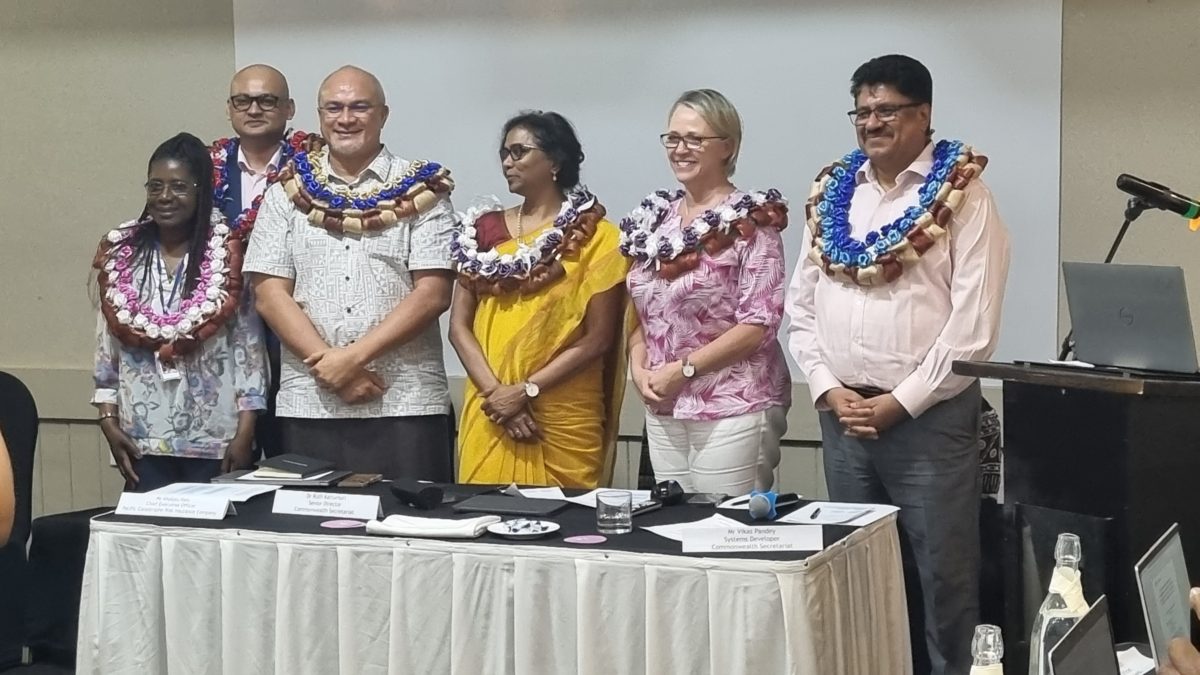PCRIC Invited to the Commonwealth Secretariat Regional Debt Workshop
Last week, the PCRIC CEO, Mr. Aholotu Palu, was invited as a chief guest speaker at the Commonwealth Secretariat Regional Debt Workshop held at the Novotel in Nadi. This invitation was a result of the recognition that PCRIC has gained as a key strategic risk transfer mechanism in enhancing financial protection for the Pacific Island Countries’ fiscal shocks caused by natural hazards.
During his speech, Mr. Palu addressed debt and disaster risks in Pacific nations, explaining the role of innovative financial instruments in reducing debt and enhancing resilience. He emphasised the need to think innovatively about managing national debt, leveraging disaster risk financing and insurance as instruments to mitigate fiscal shocks.
Additionally, the transition from the outdated CS-DRMS system of debt management to the new Meridian system represents a significant upgrade, offering advanced functions and features tailored to effectively handle the complexities of national debt management.
The CEO also discussed parametric insurance within the context of risk pools, focusing on how regulators can facilitate the growth of an instrument that assists countries in preparing and recovering from natural disasters.
PCRIC serves as a dedicated risk pooling and transferring instrument for the Pacific region, enabling each country to share its disaster risks within a collective pool. By accessing international reinsurance markets, PCRIC offers a more cost-effective and affordable solution compared to individual insurance attempts by the countries. Utilising risk pooling and transfer instruments can effectively mitigate debt, whereas relying solely on risk retention financial mechanisms may exacerbate it.
This workshop served as a crucial platform to explore the availability of risk transfer financial instruments and sharing experiences to support resilience building priorities in the Pacific. Further, the invitation from the Commonwealth Secretariat was a great opportunity for PCRIC to highlight that risk pool insurance is a key instrument to support a country’s climate adaptation agenda through enhancing disaster preparedness.




